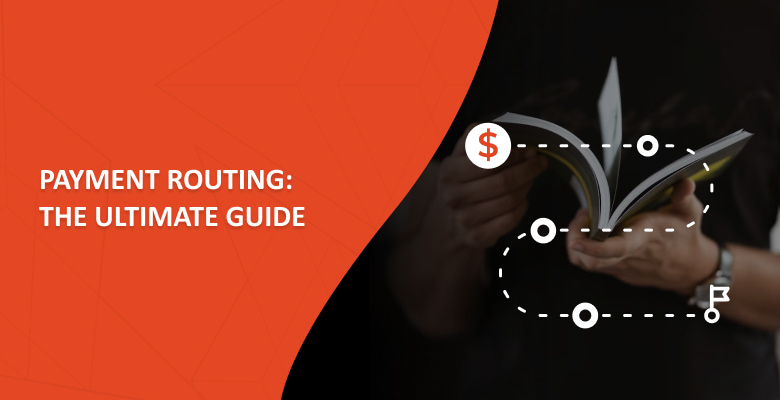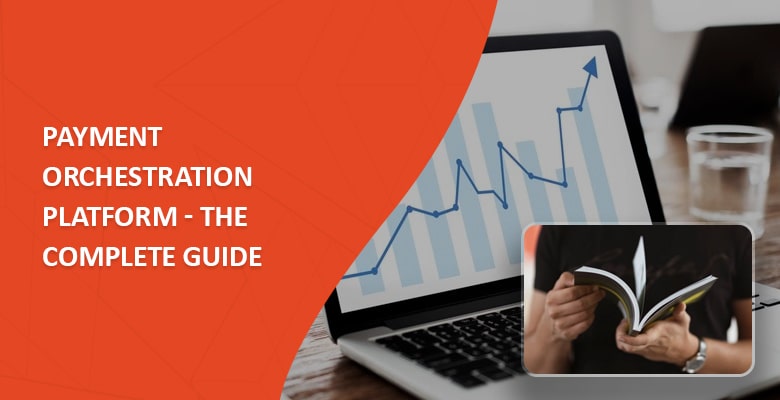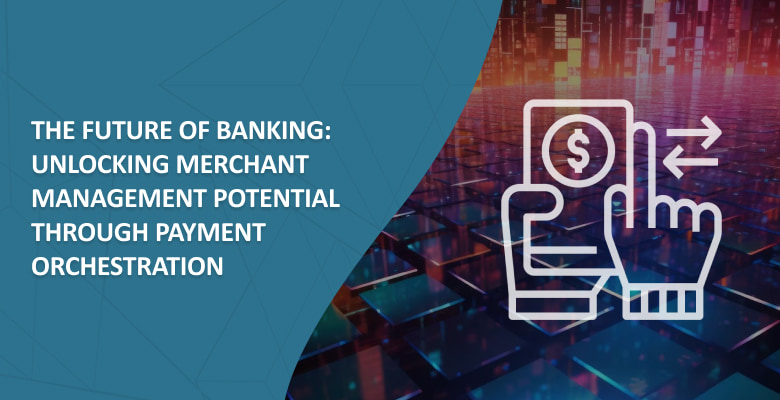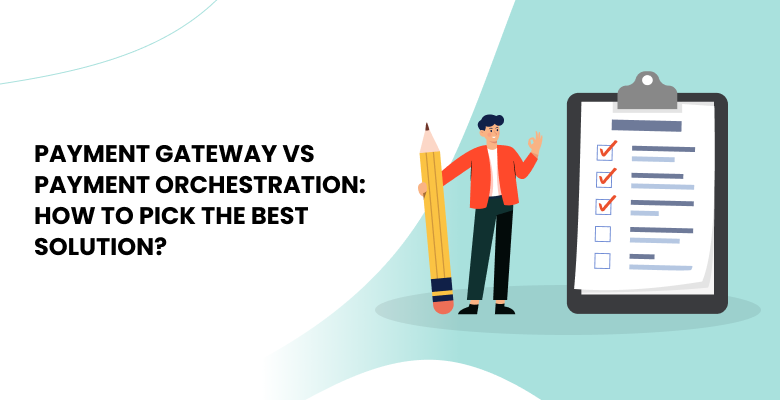
- Payment Orchestration vs. Payment Gateway: Key Comparisons
- What Are the Business Use Cases for a Payment Gateway Alone?
- When Is Payment Orchestration the Smartest Choice?
- How Do You Choose Between a Payment Gateway and Payment Orchestration?
- Staying Ahead with Akurateco
- Challenges in Implementation and Solutions
- Last Thoughts
- FAQ
Many businesses make a big mistake by choosing the wrong technology. This choice can hurt performance. Payment gateways and payments orchestration are often mixed up. However, understanding the difference can greatly impact your payment system.
A payment gateway serves as the central technology that securely connects buyers, sellers, and financial institutions, enabling a smooth transaction flow. While every online business needs a gateway, relying only on one gateway creates a higher risk of transaction failures, country limitations, and greater processing costs.
Payment orchestration unifies all these gateways under one roof. The orchestration layer offers centralized management of the payment system that connects different providers and methods to streamline transactions. Akurateco’s payment orchestration platform allows you to set up multiple integrations and customize the entire infrastructure to fit your business goals. The more providers you connect, the greater your access to regions and to successful transactions. This distinction is crucial for businesses seeking full control and scalability.
In this article, we’ll compare payment gateway vs payment orchestration to demonstrate the real difference between the two approaches. You’ll understand whether you need orchestration, which approach supports faster expansion into new markets, as well as how to minimize integration overhead while reducing payment costs.
Payment Orchestration vs. Payment Gateway: Key Comparisons
Let’s start by clarifying the key differences between a payment gateway and payment orchestration.
Payment Gateway vs Payment Orchestration | ||
| Feature/Function | Payment Gateway | Payment Orchestration |
| Authorizes & Authenticates Online Transactions | Yes | No |
| Connects To A Single Payment Processor | Yes | No |
| Connects To Multiple Processors/Gateways | No | Yes |
| Smart Transaction Routing (Based On Preset Rules) | No | Yes |
| Optimizes For Cost, Success Rate, & Location | No | Yes |
| Automatic Failover/Redundancy | No | Yes |
| Supports Global & Local Payment Methods | Limited | Yes |
| Unified Analytics Across Providers | No | Yes |
| Improves Approval Rates & Conversion | No | Yes |
| Reduces Processing Costs | No | Yes |
Payment gateway covers only the basics, which are totally fine for merchants working locally with one or two providers. Instead of creating your own payment gateway, you can rely on payment orchestration to scale your business with ease. This approach adds flexibility, scalability, and cost-saving features, which directly support business growth and expansion.
What Are the Business Use Cases for a Payment Gateway Alone?
A payment gateway is the technology layer between an e-commerce website and a payment processor. Its mission is to ensure seamless and secure transfer of funds between the customer’s and the merchant’s accounts.
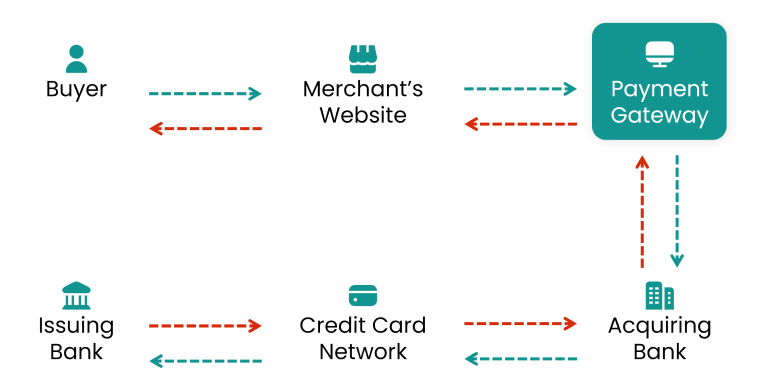
While a payment gateway may be fine in some instances, in others, it can result in wasted resources and restricted growth potential. Consider the impact in these real-world scenarios.
Use case: mid-sized merchants operating locally
For businesses that process a moderate number of transactions and operate in one or two regions where standard payment methods are prevalent, a gateway serves as an entry point to online payments. It provides all the essentials for successful transactions: authorization, settlement, and fraud checks.
However, even in this case, in the long term, relying only on one gateway means additional expenses. Merchants are tied to a single provider’s pricing model, resulting in mounting losses due to a lack of options. These challenges cut into revenue and make scaling much harder.
Use case: large merchants operating in multiple markets
A single gateway can quickly become a bottleneck once a merchant starts expanding. One gateway means no alternatives. Therefore, if transactions fail, they just get declined, with no option to redirect them to another gateway.
Our clients shared that when their business was small, one gateway was enough, but once they started expanding, they had to look for a more effective alternative, payment orchestration, Volodymyr Kuiantsev, Co-Founder of Akurateco.
For merchants operating across multiple regions and continents, the challenge when using a single gateway becomes more inescapable. They rely on several gateways, each dedicated to a specific market, yet without a centralized system to manage them. This creates operational complexity, fragmented reporting, and missed opportunities. In such scenarios, orchestration becomes essential to consolidate management, improve routing, and support sustainable growth.
When Is Payment Orchestration the Smartest Choice?
The key differences between payment orchestration and payment gateway lie in the level of comprehensiveness. Gateway is a one-layer approach, while orchestration offers a multi-layer infrastructure with access to multiple gateways and other technologies for seamless transactions.
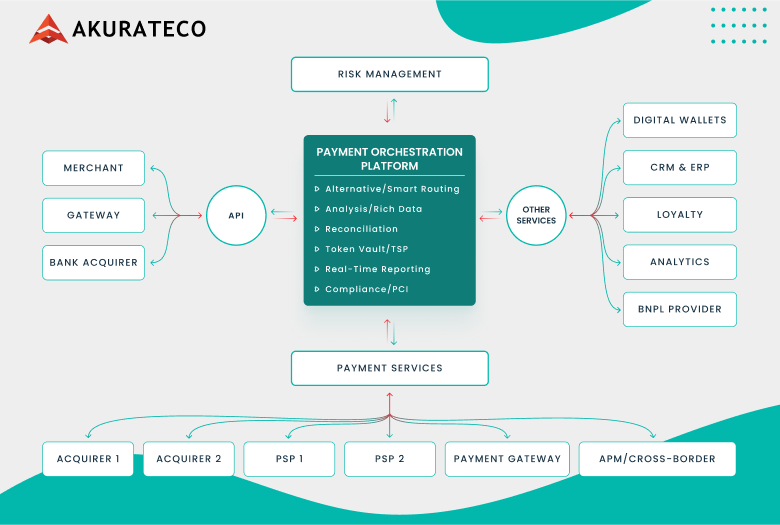
Starting to use payment orchestration is the smartest choice when your business strives for global expansion and needs cost optimization, risk management, analytics, monitoring, and smart routing. Let’s see how orchestration can fulfill these requirements for large merchants on the following use cases.
Global expansion
A business relying on a single payment gateway soon realized its limitations in scalability and market reach, so it adopted a payment orchestration platform. A payment orchestrator integrates multiple payment providers and acquirers under one roof. Akurateco offers 600+ integrations to global and local providers worldwide. Within a week, the company integrated multiple providers, completed onboarding, and successfully began using them in production, thereby entering new markets.
As a result, this shift reduced dependency on a single gateway, lowered risks, and gave the merchant greater flexibility and control over its payment operations, paving the way for sustainable growth.
Cost optimization
Since a merchant had 1–2 providers that provided it with gateways, this led to high transaction costs and overpayments. By moving to a payment orchestration platform, the business gained access to better pricing thanks to intelligent routing. This technology ensures each transaction is redirected to the best-performing payment provider based on a number of parameters, such as lower processing fees, higher uptime, etc.
Risk management
Payment providers rarely want to cooperate with high-risk industries due to the elevated chance of declines and fraudulent transactions. Take our client in the travel domain as an example. The merchant was working with 1–2 gateways, and the challenges were obvious: voluminous transactions and numerous instances of fraud due to the specifics of the industry.
Customers reported stolen cards, and without anti-fraud measures in place, the merchant was unable to filter out fraudulent transactions effectively. Consequently, these unchecked transfers led to excessive payment fees. To make matters worse, the higher the fraud risk, the greater the processing costs imposed by banks, as customers submitted large refund requests.
With payment orchestration, this merchant gained access to advanced fraud protection that helped stay compliant and prevent reputation damage and financial losses. Our platform allowed the business to tailor the system according to the industry specifics and integrate third-party fraud scoring tools.
Smart routing
Relying on a single gateway leaves merchants without alternatives, creating a significant bottleneck in online payments. Inefficient routing results in higher costs that could actually be avoided with orchestration.
One of our clients faced this challenge and needed to direct local and international payments to different acquirers to achieve greater cost efficiency. Thanks to orchestration with smart routing, the merchant routed local transactions to a domestic acquirer to reduce interchange fees and directed international payments to a more cost-efficient provider. This approach delivered consistent savings on cross-border payments while optimizing costs across the entire payment flow.
Akurateco offers a PCI DSS Level 1-certified payment orchestration platform that integrates the latest technologies and over 600+ banks, providers, and payment methods. It features a modular infrastructure, enabling merchants to expand efficiently.
If your business already conducts one hundred thousand transactions, and this number continues growing, we simply allocate additional resources to handle the load seamlessly, with no limits. A standalone gateway typically doesn’t have such capacity. In addition, our white-label platform allows you to make your checkout branded with various customization settings.
How Do You Choose Between a Payment Gateway and Payment Orchestration?
When comparing payment gateway vs payment orchestration, many businesses evaluate whether it’s better to continue with direct gateway integrations or move to payment orchestration platforms. The first scenario can work well at the beginning, but can quickly become technically problematic if you’re maintaining multiple APIs, updates, and reconciliations.
If you’re looking beyond the limits of a single provider, the comparison of payment orchestration vs payment gateway clearly shows that orchestration is the right choice for your business. It offers the scalability to grow without constraints, the flexibility to adapt to new markets and providers, and the foundation for long-term growth.
In summary, when choosing between a payments gateway and payments orchestration, it ultimately comes down to the specific needs of your business. If your operations are local, and you’re comfortable relying on a single provider, a gateway may be sufficient. However, for companies aiming at global expansion, payment orchestration delivers the advanced technologies and scalable infrastructure to grow seamlessly across markets.
Staying Ahead with Akurateco
Akurateco offers a payment orchestration platform that delivers advantages for different audiences.
Merchants
- Access to 600+ providers, acquirers, and payment methods through a single orchestration platform gives a great leeway in management.
- Smart routing improves authorization rates, reduces processing costs, and ensures seamless settlement with lower latency.
- By using built-in advanced fraud detection, tokenization, and real-time analytics, merchants can boost conversion and protect their customers.
Payment service providers (PSPs)
- Providers can use orchestration as powerful middleware, simplifying connectivity and enabling smooth interoperability with hundreds of providers.
- Encryption, tokenization, automated reconciliation, centralized deployment, and provider-level redundancy enhance efficiency and reliability, reducing operational risk.
- Customization allows PSPs to strengthen their brand.
Fintech startups
- The Akurateco’s platform guarantees prompt deployment and faster go-to-market, usually within a week, depending on the needs of a specific business.
- Modular infrastructure supports scalability and strong adaptability, ensuring performance as volumes grow.
- Branded checkout can help startups differentiate in the market.
Challenges in Implementation and Solutions
Setting up payment gateways and payment orchestration platforms takes a lot of effort. A large portion of businesses face similar struggles.
Integrating one or multiple gateways is complex and often requires a dedicated technical team to handle integrations, security, and maintenance. In addition, adhering to strict compliance standards is essential, meeting or exceeding industry requirements.
Another concern is vendor lock-in: once customer data is stored with a single gateway, it can be difficult or even extremely expensive to transfer, leaving merchants dependent on one provider.
Akurateco solves all these challenges by providing a ready-made orchestration platform connected via open API. It’s already integrated with different payment providers and methods. Everything you need is already in place, accessible through a single interface designed with usability in mind.
All the data is stored on the side of the orchestrator and can be distributed across multiple providers. This eliminates the pain of being tied to one vendor. With built-in features, including intelligent routing and cascading, integration assistance, and maintenance support, Akurateco provides a future-proof foundation for global payment operations.
Last Thoughts
To sum up, when comparing payment orchestration vs payment gateway, merchants need to understand that each approach operates at a different level of complexity, flexibility, and scalability:
A gateway connects to one provider; orchestration connects to many.
- Gateways have limits; orchestration grows with your volumes.
- Gateways lock you into one pricing model; orchestration uses smart routing and cascading to connect to the best-performing provider to cut fees.
- Gateways offers basic-level tools; orchestration provides a ready-made platform with the latest technologies, including fraud scoring, tokenization, and compliance.
- Gateways create complexity when expanding; orchestration simplifies global growth.
Selecting between a payment gateway and payment orchestration depends on your business stage. A gateway is suitable when you’re working locally with a single provider. If you aim for global expansion, cost optimization, and risk management, orchestration is the better choice, streamlining online payments across multiple layers of your infrastructure.
FAQ
When should a business upgrade from a payment gateway to payment orchestration?
You should consider upgrading when a single gateway no longer meets the goals of your business. If you’re unable to reach your desired performance due to integration restrictions, high costs, or lack of control, payment orchestration offers a more strategic, growth-ready alternative.
How does payment orchestration help with global expansion?
A payment orchestration platform allows you to cater to both local and global markets. By unifying multiple gateways and acquirers under a single interface, orchestration eliminates regional limitations and supports cross-border payments. Within a range of 1–2 weeks, you can have everything set up and enter new markets seamlessly.
Can a company use both a payment gateway and orchestration together?
Yes. Orchestration offers exactly this opportunity, allowing you to maintain your existing setups while adding more payment options and providers. As a result, this approach provides more flexibility for merchants.
What are the costs associated with orchestration vs gateways?
When comparing payment orchestration vs payment gateway costs, it ultimately comes down to your transaction volume and business needs. Orchestration involves a broader scope and may cost more. But it often pays off quickly by reducing processing fees through smart routing and eliminating integration overhead. Gateways lock you into one provider. On the other hand, orchestration gives you the freedom to choose the best-performing provider per transaction. As a result, it impacts ROI in the long run.


